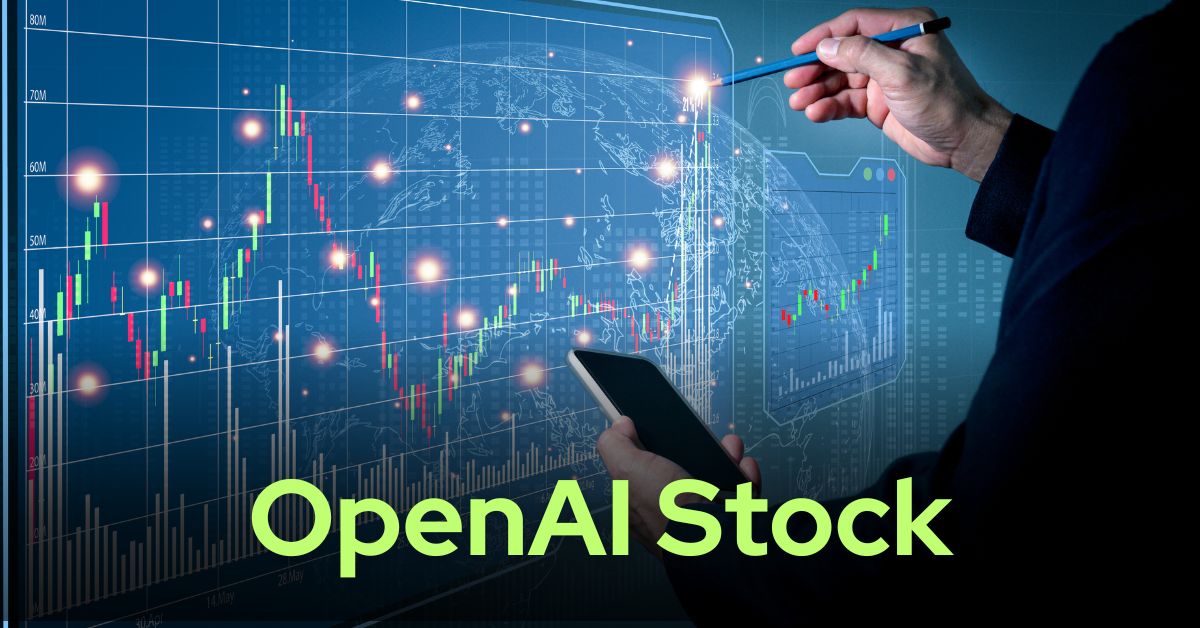OpenAI, founded in 2015, is an artificial intelligence research laboratory that aims to ensure that artificial general intelligence (AGI) benefits all of humanity. While OpenAI is a private company, its mission extends beyond financial gains, focusing on the responsible development and deployment of advanced AI technologies. In this article, we will delve into OpenAI’s vision, explore its accomplishments, and discuss the potential impact on the OpenAI stock.
Table of Contents
- Introduction
- What is OpenAI?
- OpenAI’s Achievements
- 3.1 Language Models: GPT Series
- 3.2 Robotics and AI Research
- 3.3 Ethical Guidelines and Initiatives
- The Potential Impact on OpenAI Stock
- 4.1 Growing Demand for AI Technologies
- 4.2 Partnerships and Collaborations
- 4.3 Competitive Landscape
- Conclusion
- FAQs
- 6.1 Is OpenAI a publicly traded company?
- 6.2 How can I invest in OpenAI stock?
- 6.3 What are the risks associated with investing in OpenAI stock?
- 6.4 How does OpenAI generate revenue?
- 6.5 Does OpenAI’s mission impact its financial performance?
1. Introduction
OpenAI has become a prominent player in the field of artificial intelligence, known for its cutting-edge research, influential language models, and commitment to the responsible development of AI technologies. With its innovative approach and focus on societal impact, OpenAI has attracted attention from investors and tech enthusiasts alike.
2. What is OpenAI?
OpenAI is an AI research laboratory that aims to build safe and beneficial AGI. AGI refers to highly autonomous systems that outperform humans at most economically valuable work. OpenAI’s mission is to ensure that AGI benefits all of humanity and to avoid uses of AI that harm humanity or concentrate power unduly.
3. OpenAI’s Achievements
3.1 Language Models: GPT Series
OpenAI has made significant strides in natural language processing (NLP) with its series of language models known as GPT (Generative Pre-trained Transformers). These models have demonstrated impressive language generation capabilities, enabling tasks such as text completion, translation, summarization, and even generating creative pieces of writing.
3.2 Robotics and AI Research
OpenAI has also ventured into the realm of robotics, exploring the intersection of AI and physical systems. Through robotic research, OpenAI aims to develop AI systems that can understand and interact with the world in a more embodied manner.
3.3 Ethical Guidelines and Initiatives
OpenAI places a strong emphasis on ethical considerations and responsible development of AI technologies. The company actively works on developing guidelines and frameworks to ensure that AI is developed and deployed in a manner that aligns with societal values and minimizes potential risks.
4. The Potential Impact on OpenAI Stock
4.1 Growing Demand for AI Technologies
The demand for AI technologies continues to rise across various industries. As OpenAI pioneers advancements in AI research and develops practical applications, there is potential for increased market adoption of their solutions, which could positively impact the value of OpenAI stock.
4.2 Partnerships and Collaborations
OpenAI has formed strategic partnerships and collaborations with industry leaders and organizations. These collaborations can foster innovation, drive commercialization, and open doors to new markets, potentially fueling the growth of OpenAI and its stock value.
4.3 Competitive Landscape
While OpenAI stands as a prominent player in the AI research and development space, competition from other companies and research institutions is intensifying. The dynamic nature of the AI industry and the emergence of new breakthroughs and players can influence the performance and value of OpenAI stock.
5. Conclusion
OpenAI has established itself as a leading AI research laboratory with a strong focus on AGI development and responsible AI deployment. The company’s innovative research, influential language models, and ethical initiatives position it at the forefront of the AI industry. However, as with any investment, it is essential to consider market dynamics, competitive landscape, and other relevant factors before making decisions related to OpenAI stock.
6. FAQs
6.1 Is OpenAI a publicly traded company?
No, OpenAI is currently not a publicly traded company. As of now, it operates as a private entity.
6.2 How can I invest in OpenAI stock?
Since OpenAI is not publicly traded, individual investors cannot directly purchase OpenAI stock. However, it’s important to stay informed about any future developments or announcements regarding OpenAI’s stock availability.
6.3 What are the risks associated with investing in OpenAI stock?
Investing in any company’s stock carries inherent risks. With OpenAI, factors such as technological advancements, competitive landscape, regulatory changes, and market demand for AI technologies can impact the performance and value of the stock.
6.4 How does OpenAI generate revenue?
OpenAI generates revenue through a combination of research collaborations, partnerships, and commercialization of its AI technologies. The company also offers access to its language models through licensing and API services.
6.5 Does OpenAI’s mission impact its financial performance?
OpenAI’s mission to ensure AGI benefits all of humanity and its commitment to responsible AI development may influence certain business decisions or partnerships. However, the direct impact on the company’s financial performance would depend on various factors and market dynamics.
